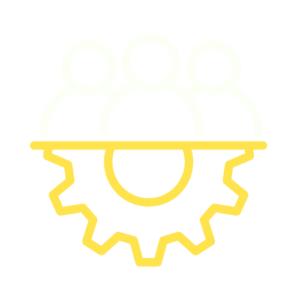TAO - The independents
Electoral program 2025
For a competent, permanent and independent civil service in the face of Europe’s challenges in a changing landscape with the advent of AI, we encourage critical thinking, protect freedom of speech for EU officials and foster the ability to think out of the box. Impermeable to dogmas and intellectual conformism, refusing to take things at face value.
NEXT GENERATION TELEWORK
The European Commission must take stock of the teleworking experience which has become a standard work pattern, defining the direction of travel for any modern public administration. We are at a crossroads and must evolve, to make our workplace more attractive, efficient, and healthy.
TAO has been following and analyzing the evolution of telework for years. From the frontlines, we have championed the paradigm shift, prodded Management to adapt to changing times, denounced the ‘one size fits all’ hotdesking model, championed telework from abroad, pioneered the right to disconnect, actively promoted a model whereby not all the staff members must be physically present.
TAO takes a keen interest in teleworking trends, their potential and their health and safety implications at the workplace.
TAO calls on the European Commission to integrate the following priorities :
EFFECTIVE RIGHT TO DISCONNECT
This fundamental right of social law must be autonomously framed and monitored to materialize.
MORE TELEWORK FROM ABROAD
10 working days is insufficient. TAO proposes, following a public petition, 5 working days per month. For a maximum of 60 working days per year, not combined with annual leave, plus 5 additional days combined with annual leave. A reasonable compromise respecting the integrity of our European civil service, legally on point and a vote of confidence in our staff.
URGENT IMPROVEMENT OF WORKING TOOLS
Active promotion of good sound hygiene with approved microphones so that videoconferencing can occupy its rightful place as a safe, efficient, and reliable tool in the teleworking toolbox.
Hybrid working culture
Differentiating between autonomous telework and videoconferencing. Teleworking cannot equate physical presence and virtual presence. Videoconferencing must complement not substitute face-to-face interaction and it must sound and feel natural.
Flexi-Teleworking
Teleworking should not be a monolithic principle considering full working days or half-days as the single unit of measure. Selectively teleworking at certain periods of the day and physically working at the office at other times could be a very nice addition to the work-life balance arsenal and could contribute to greening, easing gridlocks in 8-10 Brussels’ traffic.
Teleworking & Burnout
An urgent review of the current overuse of video conferencing must be conducted and ground rules established.
- Monday mornings and Friday afternoons videoconference-free time.
- Other workdays 9:00-12:30 and 14:00-17:00.
- Maximum 90 minutes with no breaks.
- If more than 90 minutes 20 minutes break after each hour.
- 60-minute break for back-to-back videoconferences.
- Never during lunch periods, except for voluntary training courses.
- E-mails sent between 8: 00-19: 00 on workdays.
- No emails read or answered outside working hours, weekend or travel.
- Digital break, at least one day working offline.
- Right to disconnect after 4 pm on Wednesdays and Fridays.
- Signal, WhatsApp or other app groups optional.
- Informal work groups cannot be used to issue instructions outside working hours.
Teleworking & Sound
Videoconferencing participants experience frequent online meetings as unpleasant and tiring. Scientists are warning that videoconferencing may have consequences for human health. Causes of videoconferencing fatigue are attributed to cognitive distress and overexposure to aggressively overprocessed sound.
Overexposure to artificially enhanced and heavily processed sound, which ironically is intended to make it more intelligible, ends up making it harmful. Tinnitus, hyperacusis, hearing loss and vertigo are the usual suspects. Videoconferencing is perceived by most colleagues as a necessary evil, the price to pay to benefit from telework.
However, this is a misconception. Solutions exist and they are not difficult to implement. Videoconferencing sound is typically aggressive and artificial, but can it sound natural and harmless? Absolutely, it is as simple as using the right type of tabletop cardioid microphone, using headphones to avoid feedback, and tweaking the settings in the platform of your choice: Zoom, Webex, or Teams to disable all sound manipulation and enhancement.

TAO calls on our administration to develop the teleworking model based on three principles :
➤ EFFICIENCY
Work performance based on flexibility.
➤ EMPATHY
Staff as human beings not a factor of production.
➤ HEALTH & SAFETY
Precautionary principle and duty of care.
JSIS/SICKNESS INSURANCE FUND
Health care inflation in Belgium for many years and a partial revision adopted in 2007 results in an average reimbursement rate well below the 80 % and 85 % stipulated in the Staff Regulations (Article 72). It is high time the Commission addressed the situation.
TAO intends to make further proposals to improve the situation of staff in and outside Brussels.
TAO proposes a yearly adjustment method based on the Belgian Health Index, a RCAM Card recognised across Europe.
a framework based on the belgian health index
TAO proposes an adaptation mechanism integrated in the JSIS legal framework. It could be based on the Belgian Health Index applicable to all ceilings. An exception clause could be introduced which would be linked to the budget.
A European RCAM Card
The introduction of an RCAM card recognized across Europe, like the European Health Insurance Card (EHIC), to simplify access to healthcare.
Revising Article 72
Reopen the general implementing provisions for Article 72, which lay down the framework for the sickness scheme, based on the provisions of the Treaty.
Reimbursement Automation
We support automation and integration of reimbursements with the Belgian system. This new approach, which should be implemented in the Spring, should replace the system whereby members pay up front for medical expenses, in most cases and reduce medical reimbursement bureaucracy, while facilitating PMO’s task.
Elderly Care Insurance
TAO also calls for the creation of a genuine care insurance for the elderly who remain, not in a retirement home; at a time when the population of pensioners is constantly increasing.
Higher Dental Care Ceilings
Increase the existing ceilings for dental care, which have not changed for 17 years. The overall ceiling of EUR 750/year for common care reimbursed at 80 % is clearly insufficient for current prices in Brussels and across Europe. The ceiling of EUR 350 for a crown and EUR 550 for an implant are completely exceeded by real prices.
Automated Special Reimbursement Notifications
TAO also requests automated information from members when they are entitled to the special reimbursement granted for the non-refunded part of the expenses incurred during a period of 12 months, which exceeds the half-yearly average of the member’s basic monthly income received during that period.
Modernizing Optical Coverage
Revise the ceilings for lenses and frames for spectacles, which have not been modified since EUR 2 007,100 for single-focal lenses and EUR 350 for multifocal lenses no longer reflect the reality in Brussels.
Urgent JSIS Threshold Revision
JSIS reimbursements threshold revision is urgently needed. Also include diseases like Lipoedema that affects 11 % of women. JSIS remains in the dark.
Ending Unfair JSIS Reimbursement Restrictions
An end to legally restrictive JSIS/JSIS reimbursements practices that unfairly penalize beneficiaries.
Coverage for Essential Health Needs
JSIS does not reimburse vitamin or supplements and does not care for stress levels in blood tests. They are not reimbursed at all! While their effects in the health are demonstrated by numerical clinical studies.
Better Mental Health Support
Increased coverage for psychologist sessions, essential given the rising number of burnout cases.
Streamlined Annual Checkups
Simplify procedure for annual checkup for personnel and partners.
Recognizing Rare Diseases
An update in the recognition and treatment of rare diseases, providing adequate access to appropriate care.
These measures must be implemented to ensure equal and adequate health coverage, vital for the well-being of the staff. In turn, health is essential for the smooth functioning of the institution.
TAO will continue to advocate for these measures with determination.
Having a Health Card accepted by all Member States would make it easier to receive treatment and would also protect the Commission from the systematic health services overpricing.

The report of the Management Committee for Sickness Insurance indicates that the net reserve amounted to over EUR 305 million and close to EUR 400 million in 2024. This capital, which belongs to the members, must be put to good use and comply with the reimbursement conditions laid down in the Staff Regulations. It is no longer possible to make minor adjustments as in 2023.
Colleagues’ health is at stake.
Adjusting inflation has significantly increased the cost of medical care, exposing the gap between the reimbursement caps of the Joint Sickness Insurance Scheme (JSIS) and actual costs, which have remained unchanged since 2007. In April 2022, we highlighted this issue, which has had a specific harmful impact on low-wage employees. In November 2023, after 17 years, an increase in the reimbursement caps was adopted, covering services such as:
- General and specialist consultations: Caps up to EUR 42 and EUR 64.
- Dental care: increase in several procedures to EUR 350.
- Hearing aids and incontinence supplies: Caps revised to EUR 1,800 and EUR 1,320.
- Medically assisted procreation: expanded access and revised caps.
However, these adjustments remain insufficient. They do not fully account for inflation, and further measures are needed to ensure an efficient system.
JOB PROFILES NOT ELIGIBLE TO TELEWORK
Compensatory hourly credits
TAO proposes the allocation of hourly credits for employees who are ineligible for telework, enabling them to perform job-related tasks—such as development, planning, and conception—from home, with prior approval from their line manager. These arrangements are sector-specific and regularly monitored to ensure fairness across all departments.
Improving worfk conditions
TAO advocates for enhanced flexibility measures, including adaptable work schedules, to support a healthier work-life balance. These arrangements aim to accommodate diverse professional and personal needs, fostering a more sustainable and equitable work environment.
legal playing field
TAO conducts regular analyses of quality-of-life disparities between teleworkers and in-person employees, identifying key differences in working conditions. Based on these findings, tailored proposals are developed to reduce gaps while taking into account the specific needs of each profession.

Changing working patterns have generated inequalities. Many workers cannot telework due to the very nature of their jobs.
These professionals, indispensable for the functioning of the institution, deserve recognition for their commitment and availability.
These following measures aim to ensure that all staff, whether working remotely or on-site, are treated fairly and equitably.
ARTIFICIAL INTELLIGENCE
TAO has been the only staff association/trade union tackling this issue which will shape our future. We call upon our administration to urgently make public its prospects. The gradual implementation of IA will surely have an impact on staffing, professional profiles and learning needs. The corollary is clear, Management must involve staff representatives
The EC is a public institution
Therefore, the de ployment of Artifial Intelligence (AI) systems must be guided by public interest. It is crfucial that trade-offs between human expertise and AI adoption are carefully weighed, when evaluating proposals to implement AI applications. Especially proposals conducive to layoffs. AN independent fundamental rights impact assessment should be conducted for any AI deploymeent that could affect staff members and basic working conditions.
center of gravity
Employees must be the center of gravity of the AI transition and be actively involved in decision-making as they are directly concerned.
involvment
Staff representatives and trade unions must be fully involved in the implementation of AI from the design phase. A joint AI committee bringing together : staff representatives, trade unions, independent experts and management should be set up to monitor AI from the design and implementation to regular life-cycle evaluations. Only a social dialogue worthy of that name will ensure that the positive effects of AI can unfold, while the negative ones are mitigated.
digital and ai literacy
Digital and AI literacy is pivotal to AI implementation and must be the starting point for any discussion on AI adoption.
guarantees
Guarantees must be reinforced to ensure accountability, demonstrating how generative AI bias and inaccuracles can be effectively mitigated.
supports of employees
AI applications must support employees, not replace them. Employees must have the right to decide when and how to use AI output.
good data governance
AI input data must be top quality and properly managed. Good data governance includes curation, cleaning, correcting and safeguarding.
intensive ai models
Computationally intensive AI models, driving much of the investment in the field, come with extremely high-ater usage, heavy reliance on rare minerals, significant energy costs, massive carbon footprint and increasing E waste costs drfawing on already strained public resources. Current AI systmes are incompatible with sustainability goals. An environmental impact assessment framework should be adopted to mitigate AI consequences before implementing AI solutions.
precautionary principle
AI-based mechanism implementation must follow the precautionary principle establishing ethical responsabilities. Rish mitigatig measures should be in place.
no one left behind
AI adoption may lead to job displacement, completely changing the career we signed up for. All staffers should have the opportunity to adapt to AI evolution with proper training and career development.

TAO has organized a series of expert Conferences to discuss, propose and contribute the consequences in the short-medium and long term for the institution from the perspective of the staff members, their jobs, and their needs.
The advent of AI should not dehumanize, but rather re-humanize. Automate the drudgery but allow humans to do what they are best at.
STAFF CATEGORIES : AD, AST, AST-SC, AT/CA
Administrators (AD)
Often ignored by trade unions, the population of AD officials is important in the Commission and carries out important work for the institution. They are one of the pillars of the European civil service.
Firstly, to set up a genuine career and mobility service, as in any compliant international administration or company, and to carry out an individualized follow-up of any AD who requests it with a career plan. Real career developments appear to be only for those with networks and suitable connections. It is important to alternate desk officer posts with coordination posts and to provide for changes in posts in the DGs and within the COM departments and enhance mobility to the other institutions.
The Commission must employ external managers sparingly. It should offer career prospects for ADs to management posts and for heads of unit to senior management. To this end, we propose that DG HR organize preparation for assessments and offer training for senior managers for all AD staff.
The Commission must organize a real network of advisers and/or senior experts who are specialists in a file. It is also necessary to unlock Senior Expert’s vacancies and to reserve a share of AD 13 and AD14 promotions for this population.
Assistants (AST)
The career prospects of AST staff are insufficient, and the skills of these colleagues are too often underutilized.
Although certification may partly meet the legitimate expectations of some ASTs (eligible for grade AST5 and above including other criteria), the results remain very limited.
In addition, we know that AST staff have evolved significantly over the years. Most of these colleagues have an increasingly high level of instruction (mainly university studies) and their skills and qualifications very often exceed the needs of the posts they occupy. Initially, these colleagues will accept and perform these functions with talent, but later the lack of career progression could demotivate them.
To cope with the lack of career prospects and considering the recruitment difficulties encountered by the Commission (EPSO crisis and lack of competitions, a sharp increase in temporary staff and potential risks of continuity and transmission of knowledge, needs for specialized occupations, geographical imbalance in certain grades, etc.)
TAO proposes 5 solutions, with current Staff Regulations, which will make it possible to meet some of our colleagues’ expectations but also to meet some of the recruitment needs of the departments.
- Draw up a complete map of current AST jobs, colleagues’ profiles and their experience level.
- A detailed overview of the ASTs in office and thus enable departments to propose posts (without obligations of course) commensurate with colleagues’ skills.
- Increase the number of successful candidates for certification.
- Open internal AD competitions to AST colleagues with the necessary qualifications and experience.
- Offer AST colleagues who do not envisage an AD career a more individualized professional training program allowing for a change of career (e.g. financial assistant to assistant policy officer).
contract agents (CA)
Fundamental principle of EQUITY and equality of treatment must apply. The Commission cannot continue to squander the immense in-house talent at their disposal.
TAO has conducted an unprecedented institution wide broad-scale dialogue, between the staff category colleagues and our representatives and within the contract agents. Organizing several Conferences over the course of a year. We have set up of an ad hoc task force, with periodic meetings with the colleagues, and regular contact with the administration to come up with a catalog of 12 concrete proposals to make current legal provisions work to our advantage.
Temporary agents (AT)
Temporary agents recruited to provide the institution with valuable expertise are very welcome, allowing also remedy the current geographical imbalance. TAO has fought and will continue to fight so that the selection of these colleagues is fair and transparent, its career evolution is based on merits, and the career management is conceptualized and implemented with the overall perspective of the evolving needs of the institution.
Assistants Secretary (AST-SC)
Considered informally by many as the “Trade union of the AST-SC”, TAO will continue its long-lasting commitment for better professional recognition, and an adequate 4 career prospect for this staff category.
Together we have obtained an unprecedented internal competition. The challenge ahead remains high, and the need for a comprehensive treatment of our colleagues has become urgent.
- TAO requests the Administration to table concrete ideas and implementing work calendar with measurable objectives, to ensure career development opportunities for AST/SCs, as requested by the European Court of Auditors in its 2024 special report on the European civil service.
- As there is no certification-like mechanism for this staff category, permanent fight for the launch of internal competitions every year to change function group (as the one launched in 2024), to retain the in-house talent mentioned in the HR Strategy, remove eligibility restrictions not stemming from the Staff Regulations, and give fair chances to AST/SCs to become ASTs.
- Aim for a fair promotion quota for AST/SCs, to update it and adjust it to the current context of increasing number of AST/SCs, to correctly detected imbalances, and to allow a faster growth within the function, removing existing promotion bottlenecks.
- Dignify and value the work carried out by AST/SCs by acknowledging their role and redefining in the job descriptions, job titles and tasks performed, in order to reflect the reality, in line with the recommendations from the Court of Auditors (Special report 24/2024) and on the basis of the altered talent mapping carried out by the Commission.
- Increase the number of posts accessible to AST/SCs in EU Delegations and EU Representations.
- Raising awareness among all staff about the situation and crucial contribution of the AST/SC function group to the general optimal functioning of the institution as a whole.
- Dignify, recognize and value the work OF AST-SCs, redefining their role in the job descriptions, job titles and the tasks performed, in order to reflect the reality in a talent mapping exercise.

Contract agents at the european commission : 12 POSITIVE MEASURES TO FULLY DEVELOP INTERNAL TALENT POTENTIAL AND ENSURE SOCIAL JUSTICE
HR MANAGEMENT
To ensure a dynamic, transparent, and effective administration, the Commission must modernize its management practices. Streamlining structures, improving talent retention, and fostering a more inclusive work environment are key to attracting and retaining top talent while enhancing overall efficiency.
optimized management structure
Significant reduction in the number of units for more effective management.
enhanced communication
Favor “person-to-person” communication, with PMO
proactive talent search
Reinforce the head-hunter service: pro-active search of in-house talent.
leadership accoutability
Compulsive mobility and 4-yearly re-evaluation of Heads of Units’ management skills.
transparent appointments
Management modernization with transparent panels for the appointment of Heads of Unit involving Staff Committee members.
a more attractive workplace
Attractive Commission for millennials, especially from underrepresented countries.

NURSERY NURSES
Nursery nurses play a key role in the development and well-being of our children, providing crucial support to families. Yet, the working conditions of these professionals are characterized by intense physical effort, repeated postural constraints, constant emotional stress, and a high mental burden.
official recognition of arduousness
TAO advocates for the official recognition of arduousness by registering the profession of nursery worker among recognized arduous professions and ensuring an accurate assessment of factors such as carrying loads, restrictive timetables without telework or leave of absence, and psychological stress.
improving working conditions
To improve working conditions, TAO calls for staff reinforcement to prevent overwork, investment in ergonomic equipment, and the provision of psychological support to reduce burnout risks.
salary evaluation and early retirement
TAO demands salary evaluations and early retirement options by introducing specific premiums reflecting the profession's arduous nature and allowing early retirement for long-serving nursery nurses under demanding conditions.
training and awareness
TAO emphasizes the importance of training and awareness through the implementation of professional risk management courses and increased awareness among both staff benefiting from crèche services and the administration on the significance of promoting these professions.

TAO recognize the commitment of nursery nurses and strive to provide them with decent working conditions, commensurate with the importance of their contribution to our children and society.
DRIVERS
from gf1 to gf2
After updating ‘more than a year ago’ their descriptions of their tasks accompanying them to the transition from category ‘GF1 to GF2’, which had been promised.
Working with the Article 13 Committee
Working with the Article 13 Committee (“Screening”) to identify their jobs as a GF2 and protocol function like all Berlaymont jobs.
Clothing allocations
Create a working group with their delegations to select their clothing allocations “in sufficient quantities”.
a delegation of drivers for the commissioner's car
Ask their hierarchies to involve a delegation of drivers to choose Commissioners’ cars “Option available in vehicles” for better comfort.
unteleworkable job
Time credit for this job profile which does not telework.

CATERING SERVICES AT THE HEART OF STAFF
TAO has launched initiatives to improve the accessibility, quality, and affordability of meals, particularly for low-wage staff:
healthy and sustainable food
reduced prices
Proposing subsidized meals for low-wage employees not increasing prices for others.
reopening canteens and cafeterias
Calling for an increase in the number of dining facilities to reduce dissatisfaction.We recognize the commitment of nursery nurses and strive to provide them with decent working conditions, commensurate with the importance of their contribution to our children and society.
TAO demands an increased budget to hire more staff and continues to advocate for prioritized catering services for employees’ well-being.
promotion of healthy and sustainable food
TAO has contributed to introducing healthy, plant-based food options in canteens, in line with environmental and health concerns. These efforts have resulted in an improved offer under the “fit at work” program, along with OIB support for more plant-based choice, promoting employee well-being.
advocacy for discount meals for low-wage employees
TAO has advocated for the lowering of prices for employees with modest incomes, not increasing prices for the rest of the staff. Based on subsidies provided by the Luxembourg Commission for canteens, TAO has calculated that a budget should be allocated in Brussels to subsidized meals for low-income employees. Meals would be affordable without disrupting the financial balance of the canteens.
reopening of canteens and cafeterias
Due to the significant reduction in the number of canteens (from 13 to 9) and cafeterias (from 35 to 23) since the pandemic, TAO has emphasized the need to increase the number of dining facilities. Challenges include a shortage of hospitality staff, budget constraints, and high costs for employees, leading to dissatisfaction and difficulties for staff to access on-site meals.
TAO urges the Commission to prioritize catering as an essential service for the well-being and cohesion of employees. TAO’s key demands – wider adoption of social pricing and the reopening of more catering facilities-have yet to be fully implemented.
reopening of catering spaces
Ensure at least one cafeteria per 1,000 employees or per Directorate-General, creating essential spaces for staff well-being and social interaction.
Fair and High-Quality Meals
Enhanced quality and larger portions while introducing social pricing for lower-income employees, financed through internal subsidies, without increasing costs for other staff members.
Investment for Better Service
Increased budget allocations to hire sufficient staff and ensure the efficient operation of cafeterias and canteens.

budgetary solutions
➤ Increase the hiring budget, like measures taken in 2018 for nurseries.
➤ Finalizing the request to implement meal price reductions for employees with the lowest salaries, like the transportation cost reductions already in place.
➤ Continue to improve the offer of plant-based food options.
Together, let’s create accessible, inclusive, and well-equipped break areas for everyone.
➤ Clear display of ingredients and allergens beside each dish in canteens and cafeterias.
➤ Plant based options available for meetings through CARES (not just fruit!)
➤ Introduce the option of “no meat day”, promised but never materialized
➤ No surcharge for plant based ‘milks’ in your tea or coffee.
PARENTAL LEAVE MUST BE EQUATED TO MATERNITY LEAVE
To foster equal opportunities on the road towards a fair parental leave policy. To ensure gender equality between parents, we propose aligning paternity leave with maternity leave by extending it to 140 days, matching the current maternity leave duration. Currently, mothers receive 20 weeks (140 days) of leave, while fathers are limited to only 10 days. Fair measures, like those already implemented in some European countries, must be adopted to ensure equal treatment for all parents and support a better work-life balance
CAREER MAANGEMENT FARINESS
Recruiters favor men during hiring processes, because childbirth and ‘extended absences’ are a source of concern. This bias is deeply unfair and reinforces outdated gender stereotypes in the workplace.
THE ESSENTIAL ROLE OF FATHERS
Increasing evidence shows that the father during the first months of a child’s life is crucial for bonding, but to support mothers, often overwhelmed by new family responsibilities. Fathers must be empowered to play an active role during this critical period.
A MODERN INSTITUTION WITH EQUAL RIGHTS
A modern administration should follow the example of some EU member states by granting equal parental leave for both parents following the birth or adoption of a child. This approach would ensure equal rights.

The Commission is discussing equal opportunities and gender balance. However, significant inequalities persist, particularly concerning maternity and paternity leave. These disparities are now unjustifiable and must be addressed. Currently, mothers are entitled to 20 weeks (140 calendar days) of maternity leave, while fathers receive only 10 days of paternity leave. In a modern society, this inequality should be corrected for obvious reasons.
For these reasons, TAO believes it is time to reform the parental leave policy (Commission Decision of 16.12.2013) and align paternity leave with maternity leave. Paternity leave should be extended to 140 days to promote true equality between parents and support a balanced family life.
TALENT 55 + PROGRAM: FOR THE FULL USE IN THE BENEFIT OF THE INSTITUTION OF THE IN-HOUSE EXPERTISE AND EXPERIENCE
TAO proposed the creation of a Talent 55 + program for all staff categories AD, AST, AST-SC, CA, TA. With the following guiding principles :
Leveraging Institutional Memory
Ensuring the best use of in-house experience, knowledge, and institutional memory by integrating seasoned staff into strategic discussions and decision-making processes.
Recognizing Non-Managerial Contributions
Acknowledging the vital contributions of 50+ colleagues who are not in managerial roles but play an essential part in the institution’s success.
Rewarding Performance Beyond Management
Providing career growth opportunities and professional recognition that go beyond the traditional managerial track, valuing expertise in all roles.
Facilitating Senior Staff Mobility
Simplifying mobility processes for senior staff to access roles with similar responsibilities and public relevance, making transitions smoother and more meaningful.
Opening High-Profile Opportunities for Temporary Staff
Allowing temporary staff to participate in the development of new policies, initiatives, and high-profile projects, maximizing their expertise and contributions.
Encouraging Continuous Growth and Learning
Recognizing that staff over 55 continue to learn, grow, and develop professionally, fostering an environment where they are supported and valued.
Establishing a ‘Talent 55+’ Network
Creating a dedicated network open to all 50+ staff to encourage peer exchange, knowledge sharing, and career support.
Promoting Experience in Mobility and Headhunting
Positioning experience as a key advantage for staff mobility and recruitment, ensuring senior staff are considered for high-profile or sensitive projects.
Utilizing Expertise for Training and Mentoring
Encouraging the transfer of knowledge by involving 50+ staff in training and mentoring initiatives to strengthen intergenerational collaboration.
Tailored Training Programs for Senior Talent
Developing specific training programs, including sessions with external experts, to enhance the skills and adaptability of ‘talented senior’ staff.
Joint Monitoring by Administration and Staff Representatives
Ensuring effective implementation of the Talent 55+ program through joint oversight by administration and staff representatives, guaranteeing continuous improvements.

EUROPEAN SCHOOLS : CHALLENGES AND URGENT NEED FOR ACTION
European Schools in Brussels are grappling with a severe overcrowding crisis, jeopardizing the quality of education and the well-being of students and staff. This urgent situation calls for immediate action and a clear long-term strategy.
measures to alleviate pressure
Request the European Commission’s intervention to identify alternative solutions to overcrowding while pressuring Belgian authorities to accelerate the construction of the 5th school. Redistribute students to rebalance enrollments across all schools.
accelerate Currents projets
Demand a firm commitment from Belgian authorities to meet the construction timeline for the 5th school. Develop a comprehensive integration plan to ensure a smooth transition for new students when the school opens.
Strenthening Human Resources and Support Services
Hire additional psychologists, social workers, and counsellors to support both students and staff. Advocate for an increase in the number of seconded teachers, improving their training, and enhancing their working conditions.
adopts a long-term vision
Develop an Education Plan 2040 that Incorporates innovative and sustainable educational solutions. Conduct regular assessments of infrastructure and future needs to ensure schools remain fit for purpose.
The European Schools in Brussels are facing an escalating overcrowding crisis, marked by insufficient infrastructure and concerning project delays. Our proposed solutions include immediate actions such as adding modular classrooms and redistributing students, along with medium- and long-term strategies like speeding up school construction, strengthening psychosocial teams, and expanding the pool of seconded teachers. Strategic planning and greater transparency are essential to ensure a high-quality, student-focused learning environment.

alarming situations
➤ Widespread overcrowding : all schools are operating well beyond their capacity, with student numbers exceeding limits by 160 to 800 per site. In 2024, the total student population reached 14,700 and is expected to rise to 16,000 by 2030.
➤ Infrastructure delays : The 5th school site in Neder-Over-Heembeek, originally scheduled for 2028, will not be ready until 2030. Additionally, the future of the Evere site, currently in use, remains uncertain beyond 203
MOBILITY TO AND FROM THE OFFICE : WE NEED TO "MOVE"
Improvements to Commission’s EV charging infrastructure.
While we welcomed the launch of a small number of EV chargers in selected buildings, we are committed to lobby for necessary improvements to said infrastructure :
- The number of EV chargers has not increased since the launch of the system in April 2023 and is clearly below current and rapidly growing needs.
- The extremely low charging speed of 1 to 3 kW/h seriously limits the practical utility of the current infrastructure.
- We will lobby for the contractor in charge to take better care of malfunctioning chargers, repairs are delayed weeks or even months.
- Improved EV charging facilities in Commission buildings could help reduce pollution in the European quarter.
- We are requesting more charging points with improved access. Current access and signposting leave a lot to be desired.
- We also need to address the issue of ICE cars illegally occupying EV charging bays.
100% reimbursement of public transport season tickets in Belgium.
Public transport is key in the fight for efficient transport and reducing city centre congestion. A 100% ticket reimbursement, instead of the current 50% would create additional incentive for public transport use.
Encouraging the use of alternative sustainable means: 100 EUR reimbursement upon receipt for purchasing an electric bicycle.
The development of urban cycling in Brussels in the last 15 years has been impressive but we most build momentum:
Electrification has enhanced the bicycle as useful and versatile mode of transport in a hilly city like Brussels, suitable for covering longer commuting distances, useful for older and less physically fit cyclists, great for carrying children and shopping bags.
With battery prices falling over the years, electric bicycles have become slightly more affordable than, say 10 years ago, but they are still expensive enough to prevent many potential users from buying them. A 100 EUR contribution would be a nice incentive for some, which could help broaden the pool of users.
occupying EV charging bays.




